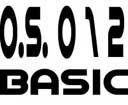A discussion online between a few programmers regarding analog to digital conversions which quickly turns into a discussion regarding the benefits of binary vs. ternary thinking and logic.
It's a pretty brief discussion and it's always interesting to read or listen to people discussing 'ternary' systems, or systems that come in 3's, which are always very elegant and refined.
At the end of the brief discussion, Jared writes
Suffice it to say: there's something really amazing about
ternary logic which is not yet fully understood, and which
changes everything it touches, for the better.
Sigh. :-)
If you are thinking in binary, yes, it will most likely look like a struggle between binary and ternary logic, which the user is forced to choose one form of logic over another.
In ternary you naturally choose both binary and ternary logic, since ternary is metalogical and metarational and binary is really just a subset of ternary.
In ternary thinking, we can have BOTH. In binary thinking, you must choose ONE over the other.
Bivalent thinkers cannot understand ternary thinkers. Bivalent paradigms cannot model ternary paradigms effectively.
If you have upgraded to ternary thinking, this post will amuse you.
If you are still operating under binary, this post will frustrate you.


1 comment:
Taoism is essentially a ternary system. There is yin, yang, and the unity of yin and yang. Each of these three philosophical elements is an integral aspect of the overall framework.
To think of the Taoist yin-yang approach as a strictly binary paradigm would be a basic misunderstanding of Taoist thinking.
Exclusive binarism is rarely found in advanced philosophical and spiritual thought, particularly of the Eastern variety.
Just though your readers might find this interesting.
Post a Comment